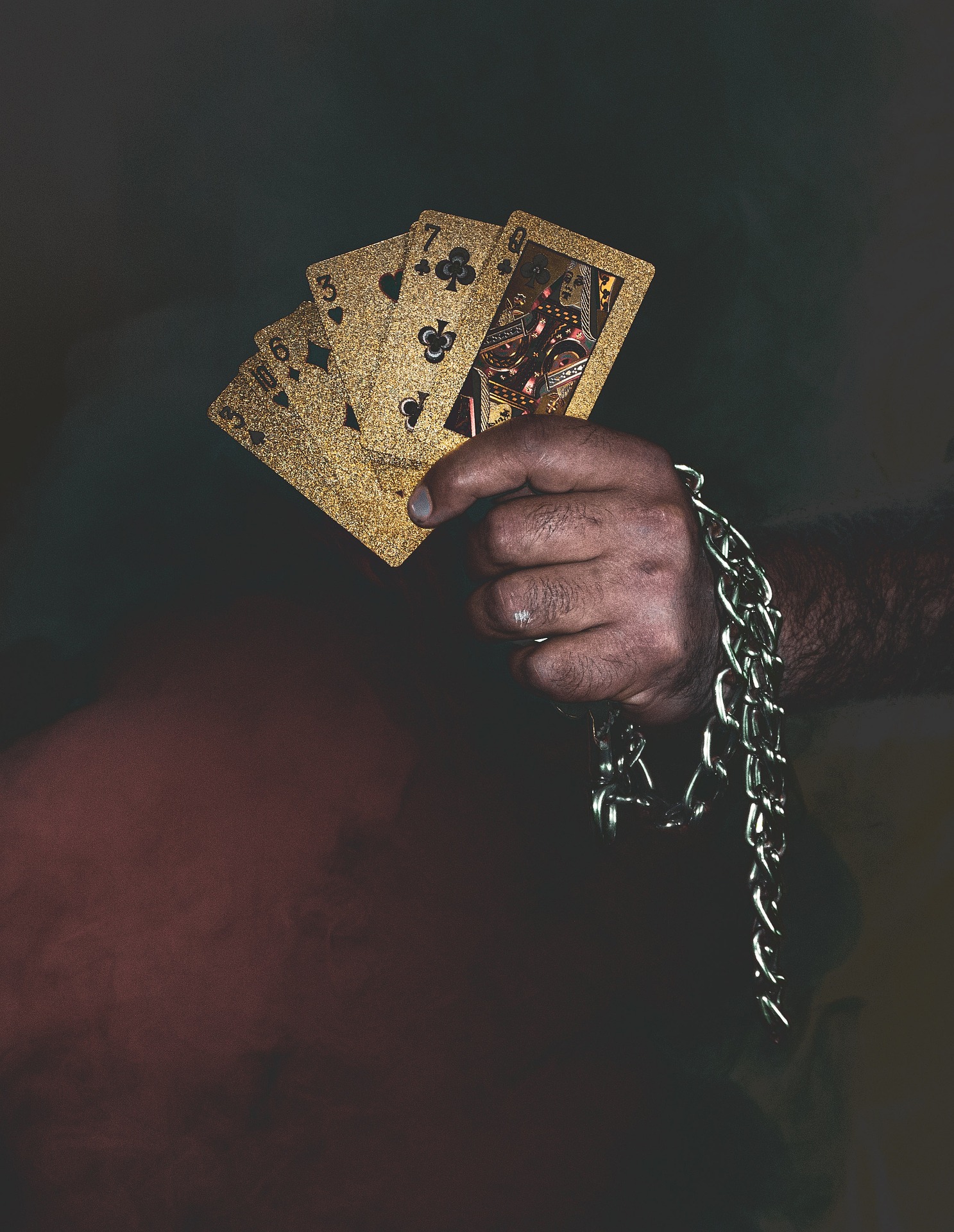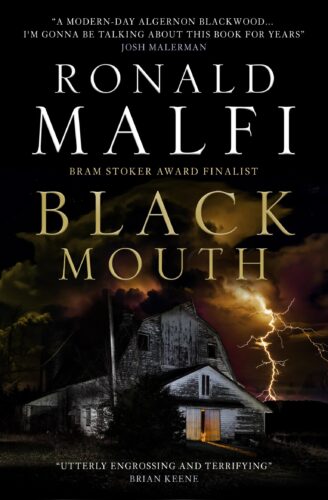Confronting the Childhood Boogeyman
Author: Ronald Malfi
Jamie Warren’s life is filled with wreckage: the effects of his long alcoholism, his estrangement from family, and a hometown that harbors a special hate for him. It is altogether too much, and just as he is starting to recover, a tragedy calls him back home. Back to his trusting, disabled brother, now alone, who needs him. Back to his childhood friends. Back to the consequences of what they did one summer.
Black Mouth is compared to Stephen King’s classic It, and there are some surface similarities, from the weirdness of the supernatural menace to the disenchanted group of adults, thrown together, remembering their childhoods and where it all went wrong. Like the Losers Club in It, Jamie and his friends are all misfits. Jamie and his brother, Denis, are lonely, unwanted children under the harsh domain of a cruel, carousing father. Clay is a Black boy with vitiligo that spots his face, and Mia is a poor girl in hand-me-down men’s clothes. Together, they sustain one another’s need for kindness and kinship, yet unlike King’s epic, there is rarely any sunny childhood joy, any nostalgia. It’s all sad and squalid from the beginning.
Then, the rag tag magician shows up. Dressed in motheaten gear, he lures the children into the woods, ostensibly to teach them card tricks and eventually, bigger magic. The magician, however, has darker designs and once enthralled, the children are willing to do anything to keep the magic alive.
The story starts with a hint of the supernatural. The town of Black Mouth, set on an old coal mine that is no longer operational, is said to have an evil influence. Legends have it that dead miners, sealed in and forced to cannibalism, still cry out. Legend says that other things live deeper in the cave and that some children are born under its curse. Jamie, still haunted by those days, thinks of the Mouth often and of what that summer lead them to become.
For those with concerns, there is no pedophilia in this story. That is not the magician’s angle, although I realized that while writing the summary that could certainly be intuited. The truth is still dark, though, and the corruption of vulnerable children is at the heart of this tale of desperation and abuse. Whereas Pennywise in It wanted to eat children in order to survive, the thing in the Mouth is more nuanced about its needs, the magician more subtle and ultimately inexplicable. We are left to guess the full ramifications, although much is still revealed.
The story begins slowly. Jamie is recalled from his rehab haze and dreams of a strange sucking sound, a dead eyed woman with a nursing infant haunting his waking and sleeping hours. As Jamie goes back to Black Mouth, we start to go back in time, to splinter into other narratives, to catch up with Clay and Mia, both of whom are recalled to Black Mouth because it seems that the magician still lives and is still targeting children.

Image by heavinn_techne from Pixabay
It’s not a call to heroism that Jamie wants. He doesn’t even really want answers. He wants to forget everything, to leave and never be called back. But responsibility is an insidious thing, something that dogs him nearly as much as the phantoms and the bottle. The search for justice turns into one for answers and ultimately revenge. It gets dark and then it gets deliciously weird.
The story oscillates between mystery and horror while also exploring the depth of the friendships amongst the outcast children, now grown up, now haunted by what they have done and what will happen again if they don’t intervene. The ending sequences down in the Mouth, with the weird carney world turned upside down, decayed and haunted and horrifying, are some of the most creative and immersive moments ever penned in horror fiction and showcase Malfi’s undeniable talent for both writing and imagination.
The only mark of imperfection in an otherwise engaging story is the portrayal of Dennis. Dennis is a man with special needs. The characters empathize with him and watch out for him, keeping him away from bullies and ensuring his safety. Yet, the numerous descriptions of his big hands and feet, his waddling gate, his vacuous stare, etc. are simply insulting and degrading to anyone with a disability. And this is not a once-and-done error, but a continuous repetition. This callous, inaccurate portrayal of a character with a disability is a major failing and although it was clearly not intended to insult people with mental and learning disabilities, it very much does.
Otherwise, Black Mouth is one of Malfi’s finest. Obviously, it’s not as good as It (what could be though?), but it is a creative, weird, horrific, and disturbing resurrection of a childhood boogeyman who turns out to be very real and very otherworldly. Recommended.
– Frances Carden
Follow my reviews on Twitter at: https://twitter.com/xombie_mistress
Follow my reviews on Facebook at: https://www.facebook.com/FrancesReviews/
- Book Vs Movie: The Shining - April 6, 2020
- Thankful For Great Cozy Mysteries - December 13, 2019
- Cozy Mysteries for a Perfect Fall - October 20, 2019



